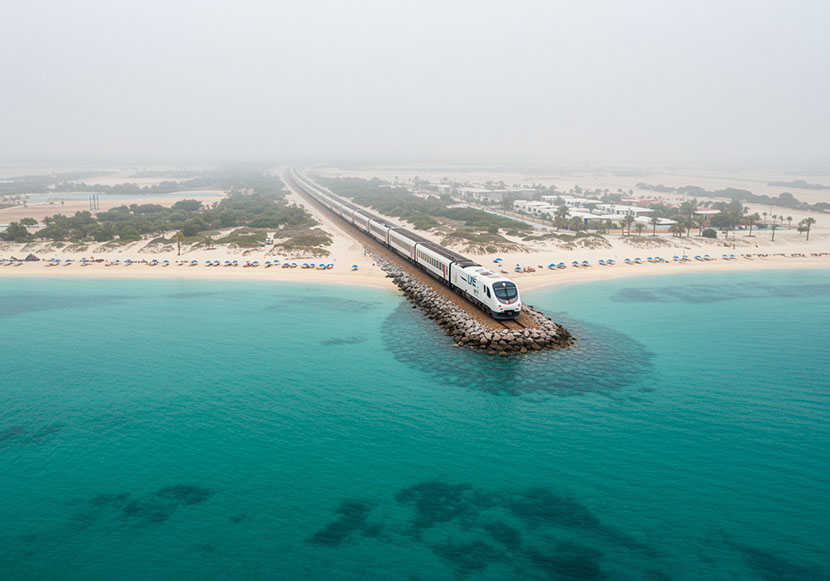Rising visa restrictions are now reshaping how people travel to and from Gulf countries in 2025. Over the last year, several Gulf Cooperation Council (GCC) nations have started revising their visa policies. These changes are being introduced due to increasing global security concerns, labor market shifts, and the growing demand for regulated migration. While the main goal is to improve control, these rising visa restrictions may significantly impact Gulf travel trends, including tourism, employment, and education.
With more barriers being added, travelers across the globe—especially from South Asia and Africa—may face delays or rejections when planning Gulf travel. The UAE, Saudi Arabia, Qatar, and Kuwait are among the countries modifying their entry rules. This trend could lead to fewer tourists, reduced migrant labor, and lower student mobility in the coming months.
Why Are Visa Restrictions Rising in the Gulf?

There are multiple reasons behind the new rising visa restrictions. Many Gulf nations are focusing on boosting national employment by reducing reliance on foreign labor. As part of their long-term plans, such as Saudi Vision 2030, governments are prioritizing skilled workers over general labor categories. This has led to tighter background checks and more detailed document requirements.
Another major factor is global security. With the rise of international tensions and illegal migration, Gulf countries are implementing stricter control over who enters their borders. Background verification and biometric data collection have become common in visa application processes.
Rising visa restrictions are also a response to overpopulation in urban zones. Cities like Dubai, Doha, and Riyadh have experienced a massive increase in foreign populations. Authorities are now seeking better balance through regulated entry, especially in sectors like construction, hospitality, and transport.
How Rising Visa Restrictions Will Affect Tourism in 2025
The tourism sector in the Gulf may face serious challenges in 2025. Many of the region’s visitors come from countries that are now being targeted with new visa policies. For example, the UAE has introduced more detailed eligibility criteria for its popular tourist visa. Similarly, Saudi Arabia’s tourist visa for religious travel, especially for Umrah and Hajj, now requires additional documentation and approval layers.
This shift may reduce the number of short-term visitors who come for leisure, shopping, or religious purposes. Rising visa restrictions could also lead to longer processing times, reducing the last-minute travel market. Travel agencies report growing concerns among clients, many of whom now fear visa rejections even after having a strong travel history.
Impact on Employment and Labor Migration
Gulf countries are known for attracting millions of migrant workers from India, Pakistan, Bangladesh, and the Philippines. But with rising visa restrictions, low-skilled workers may find it more difficult to secure employment in 2025. Many companies are being asked to justify foreign hires and prove that no local alternative is available.
While skilled professionals such as engineers, doctors, and IT specialists may still get entry under new visa types, blue-collar workers face increased rejection rates. This shift may slow down infrastructure and real estate projects, which have always relied on foreign labor for execution.
Domestic workers are also affected, with new age limits, educational requirements, and background checks being applied more strictly than before.
Education and Student Visas Also Hit
Students planning to study in the Gulf are not exempt from these rising visa restrictions. The UAE and Qatar, popular destinations for higher education due to their international universities, are adding more layers of verification before issuing student visas. Parents and students report that the process now takes twice as long, with added interview rounds and document checks.
This could lead to a decline in foreign admissions, particularly from South Asian countries. Education agents are urging Gulf governments to simplify the process, especially for applicants with good academic backgrounds.
Airlines and Tourism Businesses Feel the Pressure
As fewer travelers are expected due to rising visa restrictions, airlines and tourism businesses are likely to face reduced demand. Travel agencies, especially those that operate in South Asia, are reporting up to a 30% drop in bookings for Gulf destinations. Tour operators are also seeing rising cancellation rates as visa processing becomes slower and more uncertain.
Low-cost carriers like Air Arabia, Flynas, and Jazeera Airways might be directly affected as they serve large numbers of short-term travelers and migrant workers.
Hotels, malls, and tourism experiences such as desert safaris or heritage tours may also suffer from low footfall in 2025 unless visa processes are relaxed or digitalized.
Government Reactions and Future Plans

Despite the current trends, some Gulf governments are trying to strike a balance. The UAE, for example, continues to promote its Golden Visa and freelance visa options to attract long-term residents and professionals. Saudi Arabia is also experimenting with new visa schemes tied to investments and real estate.
Some countries have introduced digital visa application platforms to make processes faster. Qatar’s Hayya Portal and UAE’s smart visa system are steps in the right direction, though critics argue they are still too complex for first-time travelers.
Rising visa restrictions may be softened in the future if the negative impact on tourism and business becomes too high. Policy experts say a clear communication strategy and updated travel advisory systems are needed to avoid confusion among travelers and businesses alike.
What Travelers Should Do in 2025
If you’re planning to travel to the Gulf in 2025, here are a few tips to avoid getting caught in the visa trap:
- Apply early: Start your visa application at least 30–45 days in advance
- Use authorized agents: Make sure your visa agent is certified by the Gulf country’s embassy
- Check documentation: Ensure all your documents are updated, especially your passport, photos, and work or study letters
- Follow official guidelines: Only rely on official embassy websites for accurate visa rules
- Prepare for interviews: Be ready for online or in-person interviews depending on your visa type
Final Thoughts
Rising visa restrictions are already beginning to shape Gulf travel trends in 2025. From tourism to labor migration and education, the effect is broad and deep. While countries have valid reasons to tighten control, the speed and complexity of these changes could harm the Gulf’s image as a global travel hub.
It is now more important than ever for travelers, businesses, and policymakers to stay informed, adapt quickly, and push for clarity and fairness in visa processes. Only then can the Gulf region maintain its reputation as one of the most dynamic and welcoming parts of the world.
Also Read – Gulf Travel Industry Set to Cross $150 Billion by 2025



